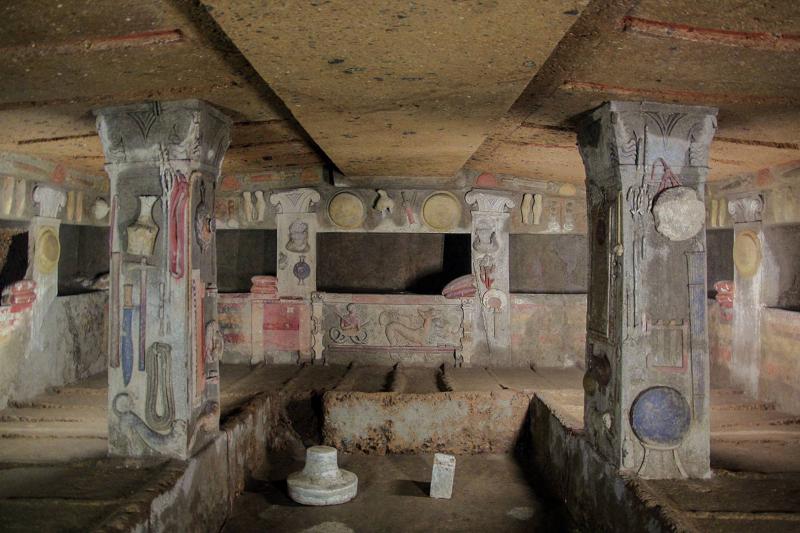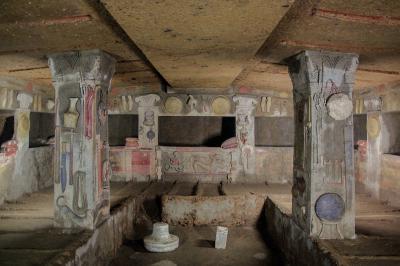Italian authorities announced on Thursday that they discovered a dining hall with black walls adorned with 2,000-year-old paintings inspired by the Trojan War during excavations in the Roman city of Pompeii. The Pompeii archaeological park stated that "the room, measuring about 15 meters long and 6 meters wide with its type of wall paintings and mosaics dating back to the reign of Emperor Augustus, suggests that the hall was used for banquets."
Park director Gabriel Zuchtriegel noted that "the walls were painted black to prevent the smoke from oil lamps from showing on the walls." He added, "People would gather for dinner after sunset, and the dim light of the lamps had an effect of making the images appear animated, especially after a few cups of good Campania wine."
Pompeii and the surrounding rural areas were buried under volcanic ash when Mount Vesuvius erupted in AD 79, resulting in the deaths of thousands of Romans who had no idea they were living under one of the largest volcanoes in Europe.
The site has witnessed a surge in archaeological activity aimed at halting years of decay and neglect, largely thanks to a €105 million (approximately $112 million) project funded by the European Union. The prevailing theme in the recently discovered paintings is heroism and fate. One mural depicts Paris and Helen, whose romantic relationship is said to have triggered the Trojan War, according to traditional accounts.




